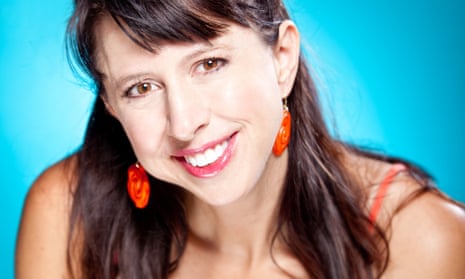As free-speech campaigners prepare to celebrate the right to read in the US’s annual Banned Books Week festival, the writer Lauren Myracle has called on parents to “trust the teens they’re trying to protect”.
According to the American Library Association (ALA), which brings a teen focus to this year’s week-long series of events across the US beginning on 27 September, books written for young adults are the most frequently challenged in America. But for Myracle, whose TTYL series of YA books topped the ALA’s list of challenged titles in 2009, the strong reactions inspired by teen fiction are a testament to its richness and ambition.
“Teen lit takes on everything – sexuality, gender identity, oppression, violence and every other topic under the sun – so it makes some people uncomfortable. Extremely,” said Myracle.
“Adults who would like to police the thoughts of others might very well be acting from a place of love,” she said, but added: “Teenagers are smart. The world is huge. Reading engenders critical thinking, not to mention empathy, so don’t take a book out of a kid’s hands. Put book after book after book into a kid’s hands. Any book, any kid. That’s an act of love.”
The ALA’s list of the year’s most-complained-about titles is topped by Sherman Alexie’s award-winning teen read The Absolutely True Diary of a Part-Time Indian, which came under fire for reasons ranging from its inclusion of violence and sexually explicit scenes to its offensive language.
“The challenges arise from the desire of parents or adult community members to shield young people from language, ideas or views that they deem objectionable or too mature for adolescents,” said Deborah Caldwell-Stone, deputy director of the ALA Office for Intellectual Freedom. “We believe that it is, in part, a reflection of the popularity of ‘helicopter parenting’, [or] overprotective parents, but the impulse to restrict youth access to certain books or ideas has been with us for centuries.”
“YA literature often includes realistic portrayals of the lives of teens who face challenges in their lives – which means that the characters may use profanity, express their sexuality and challenge the status quo, often to the dismay of some adults who believe that adolescents should be sheltered from such realities. In particular, works that that portray persons of colour or who are gay or trans often become targets of challenges,” said Caldwell-Stone.
Judy Platt, chair of the Banned Books Week national committee, agreed. “YA books are targeted more frequently because they often deal with many of the complex and troubling issues that arise in their own lives, or in the lives of someone they know – issues such as sexual identity, substance abuse, sexual abuse, mental illness, bigotry, bullying, and violence,” she said.
Platt said that although parents were “often tempted” to protect their children from “harsh realities”, the “well-intentioned efforts eventually become counter-productive, depriving young adults of the opportunity to begin to understand the difficult realities that are a part of our world and theirs”. Books, especially those intended for young adults, “provide a non-threatening framework within which these issues can be safely explored and discussed.”
“Why find offence in fiction?” asked author Ellen Hopkins, whose novel Crank has been the subject of frequent challenges. “What’s truly offensive is that our children suffer abuse – physical, mental or sexual – or are prostituted, or not accepted for their individualism, or feel the only way out is suicide, and these unfortunate things are more common than people want to believe.”
Platt pointed to the comment of the bestselling YA author Laurie Halse Anderson, who said in 2011 that “I understand the adults who are terrified of YA books. I feel compassion for them because it’s not the books they’re afraid of. They are afraid of their inability to talk to their kids about the scary, awful, real-world stuff that is out there … They know they should be talking about this stuff but they don’t know where to start.”
It’s not just YA books that find themselves under pressure. In recent weeks, a parent in Tennessee tried to have Rebecca Skloot’s biography The Immortal Life of Henrietta Lacks banned from her local schools. In May, Idaho parents challenged John Steinbeck’s classic Of Mice and Men over the profanities it includes.
As well as the host of events planned by individual schools and libraries to mark Banned Books Week, a virtual “readout” is calling for participants to video themselves reading from their favourite challenged book for the Banned Books Week YouTube channel, while on 28 September, banned and challenged young adult authors David Levithan, author of Boy Meets Boy and Two Boys Kissing, Meg Medina, author of Yaqui Delgado Wants to Kick Your Ass, banned in some places due to its title, and Coe Booth, author of Kinda Like Brothers, will be in conversation at an event in New York.

Comments (…)
Sign in or create your Guardian account to join the discussion